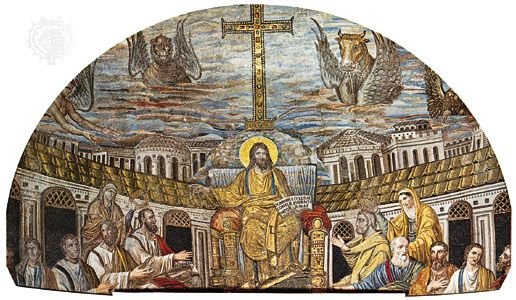Death is a topic that touches us all, for it is an inescapable part of our human experience. It’s a subject that evokes a range of emotions – fear, sorrow, or perhaps even a sense of curiosity. When confronting the reality of death, we often seek solace and understanding, and where better to turn than the Bible, a timeless source of wisdom and spiritual guidance?
Throughout its pages, the Bible delves into the depths of our mortality, providing profound insights into the meaning of death and its implications for our lives. Drawing from ancient texts written by inspired authors, the Bible presents a comprehensive and nuanced description of death – both daunting and merciful, an end and a beginning.
As we embark on this journey together, let us explore the various aspects of death as depicted in the Bible. From understanding death as a punishment for sin to viewing it as an act of mercy, the Bible reveals the intricate tapestry of life and death, offering hope and solace even in the face of profound loss.
So, join me as we delve into the spiritual significance of death in the Bible, seeking wisdom and finding comfort in the sacred texts that have guided countless lives throughout history.
Table of Contents
Death as a Punishment

The Bible presents death as a punishment for sin. From the very beginning, when Adam and Eve disobeyed God’s command, death became a consequence of their actions. This notion of punishment is prevalent throughout the Old Testament, where various crimes are met with the threat of death, including murder, kidnapping, witchcraft, and blasphemy.
In ancient Israel, the death penalty was part of the legal system, but it was not a common occurrence. The law of Moses provided strict requirements for evidence, ensuring that the punishment was carried out justly. The gravity of the crime and the moral implications were carefully considered before death as a penalty was imposed.
The law of Moses declared death as the ultimate punishment for crimes such as murder: “Whoever sheds the blood of man, by man shall his blood be shed” (Genesis 9:6).
Overall, the Bible portrays death as a consequence of human transgressions, a fitting punishment for sins committed against God and other individuals. While the death penalty was a part of the law of Moses, it serves as a reminder of the severity of certain crimes and the need for justice.
Death as a Mercy
Despite being a punishment, the first example of death in the Bible is portrayed as an act of mercy. After Adam and Eve sinned, God killed animals to provide clothing for them, foreshadowing the future sacrificial system. The story of Adam and Eve’s sin also includes a prophecy about a future savior who would defeat the serpent, but not without being wounded in the process. This foreshadows Jesus’ sacrifice on the cross.
Death as an Inevitability
The Bible teaches that death is an inevitable reality for all human beings. It is appointed for everyone to die once and then face judgment. The book of Ecclesiastes offers profound insights into the gravity of death and the wisdom it imparts.
For the living know that they will die, but the dead know nothing, and they have no more reward, for the memory of them is forgotten. Their love and their hatred and their envy have already perished, and forever they have no more share in all that is done under the sun.” – Ecclesiastes 9:5-6
Ecclesiastes reminds us that death is the destiny of everyone, cutting across all social, economic, and cultural boundaries. The inevitability of death serves as a wake-up call for us to reflect on our mortality and seek wisdom in the limited time we have.
In Ecclesiastes 12:13-14, King Solomon concludes his reflections with these words:
“The end of the matter; all has been heard. Fear God and keep his commandments, for this is the whole duty of man. For God will bring every deed into judgment, with every secret thing, whether good or evil.”
This passage emphasizes the significance of judgment after death. It serves as a reminder that our actions and choices in life have eternal consequences, and we will be held accountable for them. The inevitability of death, coupled with the certainty of judgment, prompts us to live with purpose, integrity, and reverence for God.
The Wisdom of Ecclesiastes
The book of Ecclesiastes offers profound insights into the nature of life and death. Its author, traditionally believed to be King Solomon, explores the futility of pursuing worldly riches, accomplishments, and pleasures, only to face the inevitable reality of death.
Through its poetic and introspective passages, Ecclesiastes challenges us to consider the brevity of life and the temporal nature of our pursuits.
- Appreciating the Present: Ecclesiastes encourages us to find joy and contentment in the present moment, rather than constantly striving for more. The inevitability of death reminds us to cherish the blessings we have and make the most of the time we’ve been given.
- Seeking True Wisdom: The book highlights the importance of seeking wisdom rather than pursuing empty pleasures or worldly success. In the face of death’s inevitability, investing in spiritual growth and seeking understanding become paramount.
- Embracing Transience: Ecclesiastes challenges us to recognize the transient nature of life and material possessions. By acknowledging the inevitability of death, we are encouraged to prioritize the eternal over the temporary and invest in meaningful, lasting relationships and pursuits.
Ecclesiastes serves as a profound reminder that death, while inevitable, propels us to live wisely and with purpose. It calls us to ponder life’s fleeting nature, the certainty of judgment, and the pursuit of eternal significance.
| Ecclesiastes Themes | Key Verses |
|---|---|
| Death as Inevitability | Ecclesiastes 12:13-14 |
| Pursuit of Wisdom | Ecclesiastes 7:12 |
| Embracing Transience | Ecclesiastes 1:2-4 |
Death as an Equalizer
Ecclesiastes, a book in the Bible known for its philosophical reflections, provides profound insights into the nature of death. It contemplates how death serves as the ultimate equalizer, humbling all individuals irrespective of their social status or worldly achievements. In this profound text, the author philosophizes that everyone, be it the righteous or the wicked, the wealthy or the poor, ultimately shares the same fate in death.
The teachings of Ecclesiastes challenge us to reevaluate our priorities and not be consumed by the pursuit of worldly success or material possessions. It encourages us to recognize that in the face of death, external differentiators such as wealth and social standing lose their significance. Instead, what truly matters are the values we uphold, the relationships we cultivate, and the impact we have on others.
“Vanity of vanities, says the Preacher; all is vanity” – Ecclesiastes 1:2
This contemplation on death reminds us that life’s brevity and the inevitability of death urge us to seek a more profound purpose, one not dictated by temporary worldly pursuits. The rich and the poor, the powerful and the powerless, will all return to dust, emphasizing the transitory nature of material wealth and social standing. By reflecting on this truth, we can redirect our focus to that which brings true fulfillment and lasting impact.
Ecclesiastes: Key Passages on Equality
- “For the living know that they will die, but the dead know nothing, and they have no more reward, for the memory of them is forgotten” – Ecclesiastes 9:5
- “So I saw that there is nothing better than that a man should rejoice in his work, for that is his lot. Who can bring him to see what will be after him?” – Ecclesiastes 3:22
- “For everything there is a season, and a time for every matter under heaven: […] a time to weep, and a time to laugh; a time to mourn, and a time to dance” – Ecclesiastes 3:1, 4
These passages from Ecclesiastes remind us that embracing the fleeting nature of life can lead to a deeper appreciation of its inherent value. The pursuit of equality and the recognition of death as the great equalizer encourage us to cherish the present, embrace meaningful connections, and strive to make a positive impact in the lives of others.
| Aspect | Rich | Poor |
|---|---|---|
| Material Wealth | Abundance of worldly possessions | Limited access to resources |
| Worldly Achievements | Recognized accomplishments and status | Lack of societal recognition and influence |
| Social Standing | High social status and privileged circles | Marginalization and inequality |
As illustrated in the table above, Ecclesiastes challenges the notion of societal hierarchies by highlighting the temporal nature of material wealth, accomplishments, and social standing. It encourages us to transcend these external differentiators and focus on cultivating virtues such as compassion, integrity, and love that lead to meaningful human connections and a more balanced society.
Death as a Separation
Death is a profound and inevitable event that brings about the separation of the physical body from the immaterial part of a person, often referred to as the soul or spirit. It is a moment of deep sorrow and pain when we experience the loss of loved ones, as their physical presence is separated from us, leaving behind memories and a sense of longing.
“Grief is the price we pay for love.”
– Queen Elizabeth II
The separation of body and soul has significant spiritual implications as well. The Bible speaks of a spiritual separation in hell, where those who persist in evil are eternally separated from God, experiencing the consequences of their choices and rejecting His presence. This separation represents the ultimate loss and a state of eternal anguish.
However, for believers, death is not just a separation, but also a gateway to eternal life in the presence of God. In their departure from this earthly existence, followers of Christ are united with their Creator for all eternity.
“The fear of death follows from the fear of life. A man who lives fully is prepared to die at any time.”
– Mark Twain
Through faith and the promise of resurrection, believers hold fast to the hope that death is not the end but the beginning of an everlasting life. It is a transition from this temporal world to the eternal realm, where divine love, joy, and peace abound.
As the apostle Paul wrote, “For to me, to live is Christ and to die is gain” (Philippians 1:21). The separation of body and soul, while grievous in the temporary sense, ultimately leads to the fulfillment of God’s promise of eternal communion with Him. It is the gateway that opens into the infinite embrace of divine love, where believers find their eternal rest.
The Soul and Eternity
The concept of the soul is intricately connected to the eternal nature of human existence. The soul represents the essence of a person, carrying their consciousness, emotions, and spiritual identity. It is the sacred aspect of humanity that transcends the physical limitations of the body.
The Bible teaches that the soul is immortal and lives on beyond the confines of earthly life. Jesus himself reassured his disciples, saying, “I am the resurrection and the life. The one who believes in me will live, even though they die; and whoever lives by believing in me will never die” (John 11:25-26). This promise affirms that death is merely a transition into an eternal existence.
Believers find solace and hope in the knowledge that their souls will be reunited with their resurrected bodies at the glorious return of Christ. This resurrection signifies the complete restoration of body and soul, enabling them to experience eternal life in the presence of their loving Creator.
| Concept | Description |
|---|---|
| Soul | The immaterial part of a person that carries their consciousness, emotions, and spiritual identity. |
| Separation | The act of parting or being apart, specifically referring to the separation of the physical body from the soul at death. |
| Death as a Gateway | Death is not the end but the beginning of eternal life in the presence of God for believers in Jesus Christ. |
| Eternity | A state of everlasting existence beyond the boundaries of time, experienced by the soul after death. |
Death as a Gateway
Through Jesus’ death and resurrection, believers have the hope of eternal life. Jesus, who referred to himself as the resurrection and the life, made a promise to all who believe in him. He said that even after physical death, believers will continue to live. This hope is not merely an abstract concept; it is rooted in the teachings of the Bible.
In the biblical narrative, death is not the end but rather the beginning of a new life in the presence of God. The resurrection of Jesus is central to this belief. His victory over death gives believers the assurance that they too will experience resurrection and eternal life. The apostle Paul writes that just as Christ was raised from the dead, so too will believers be raised to new, transformed bodies. This resurrection will mark the culmination of God’s plan for humanity, bringing believers into everlasting fellowship with him.
For those who place their faith in Jesus, death is not something to be feared but rather seen as a passage into the fullness of eternal life. The hope of resurrection and eternal life provides comfort and assurance in the face of mortality. As believers, we look forward to the day when we will be reunited with our loved ones in the presence of the Lord, where there will be no more pain, sorrow, or death. This is the promise that Jesus offers to all who believe in him, inviting us to embrace the hope of eternal life through his death and resurrection.
FAQ
What does the Bible say about death?
The Bible provides a comprehensive and nuanced description of death, portraying it as both menacing and merciful, an ending and a beginning. It teaches that death is a punishment for sin, an inevitable reality for all human beings, and a separation of the physical body from the immaterial part of a person. However, for believers, death is also a gateway to eternal life in the presence of God.
How does the Bible present death as a punishment?
The Bible portrays death as a consequence of disobedience to God’s command. Throughout the Old Testament, death is threatened as punishment for various crimes, including murder, kidnapping, witchcraft, and blasphemy. While the death penalty was a part of ancient Israel’s legal system, it was not a common occurrence and had strict requirements for evidence.
How does the Bible depict death as a mercy?
The first example of death in the Bible is portrayed as an act of mercy. After Adam and Eve sinned, God killed animals to provide clothing for them, foreshadowing the future sacrificial system. Additionally, the story of Adam and Eve’s sin includes a prophecy about a future savior who would defeat the serpent, but not without being wounded in the process, foreshadowing Jesus’ sacrifice on the cross.
Is death an inevitable reality for all human beings?
Yes, the Bible teaches that death is an inevitable reality for all human beings. It is appointed for everyone to die once and then face judgment. Ecclesiastes reminds us that death is the destiny of everyone, encouraging us to reflect on our mortality and seek wisdom.
Does death equalize all human beings?
Yes, Ecclesiastes reflects on how death equalizes all human beings, regardless of their social status or accomplishments. The righteous and the wicked, the good and the bad, all share a common destiny in death. This reminder challenges us to prioritize what truly matters in life and not be consumed by worldly pursuits.
How does the Bible depict death as a separation?
Death is a separation of the physical body from the immaterial part of a person, often referred to as the soul or spirit. It is a painful separation when we experience the loss of loved ones. The Bible also speaks of a spiritual separation in hell, where those who persist in evil are eternally separated from God.
How is death portrayed as a gateway?
Through Jesus’ death and resurrection, believers have the hope of eternal life. Jesus referred to himself as the resurrection and the life, promising that those who believe in him will live even after physical death. The Bible teaches that death is the beginning of a new life in the presence of God. Believers will be raised to new, transformed bodies and will forever be with the Lord in paradise.

Rockin’ the faith, one verse at a time!
Growing up, the Bible’s stories deeply impacted me. Now, with over 15 years of preaching experience, I blend timeless teachings with modern technology, making them relevant for today’s world.
Bible Hub Verse is my platform to share historical insights and thought-provoking articles, exploring both familiar and uncommon Christian topics. My passion is building a welcoming online space for everyone to learn, grow in their faith, and discover the Bible’s enduring message.
Join the journey!
God bless you.






